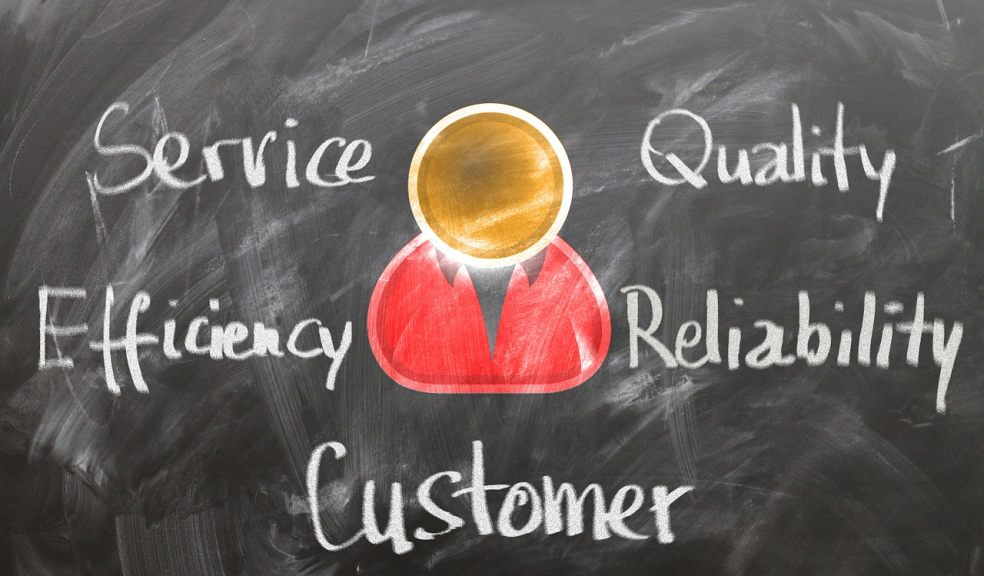
How to build a competitive advantage when you’re all offering the same service
Businesses love to claim that their products or services have a definite USP. That there’s something that unmistakably makes them better than what their competitors offer. In reality, that’s often not the case. In many fields there are a huge number of firms which offer the same service to customers and clients.
Those companies still want to develop a competitive advantage over their rivals. They still need to show clients that they are the firm that should be trusted with their custom. That begs the question of how they can develop a competitive advantage. They can’t, after all, point to any uniqueness in the service they offer.
It can seem like an impossible task. Fortunately, that’s far from the case. There are many ways that businesses can get an edge on competitors. Even if those competitors offer the same service, such as our Google Analytics agency. We’re going to take you on a whistle-stop tour through some of the possible routes you can take.
Our potential routes are based upon three main ideas of how to build a competitive advantage. Those are price, differentiation and focus. They are the three core areas covered by Harvard professor Michael Rogers’ book, Competitive Advantage.
Written in the 1980s, the book remains a seminal business textbook. We’ve borrowed some of its key tenets to create our more readily digestible hints and tips. To help you find the route most suited to your firm, we’ve also made our tips a little more practical. They’re as follows:
- Differentiating by price
- Providing better customer service
- Selling your service more effectively
- Focussing or specialising
Differentiating by Price
When choosing between firms offering the same service, most clients will first look at price. Many businesses, therefore, will be tempted to charge the lowest price.
At a basic level this seems certain to provide a competitive advantage. The logic is sound enough. Offering the same service as your rivals but at a lower price should entice customers. It might not have quite as much of an impact as you may think, however.
Prospective customers won’t be as certain as you are that your service is as good as that of your rivals. That means that lowering your price may have a different effect than you intend.
It could convince them that as your service is cheaper, it must be of lower quality. Producing that kind of perception is not what you want. It has the exact opposite effect of creating a competitive advantage. That’s on top of the obvious fact that you’ll make less margin if you charge a lower price
If you want to differentiate your service by price, you may be best served taking a more nuanced approach. That could mean introducing referral deals. Those are deals whereby clients can get reduced rates if they recommend you to a friend or contact.
It might also mean introducing short-term discounts on your prices. They will have the same effect as offering a general lower price. The existence of the discount, however, will show customers why your price is lower. They won’t conclude that it’s because your service is somehow inferior.
Offering customers added extras or perks can also help you create a competitive advantage. Growth Business cite research that says perks can be a great way of attracting customers to a brand. According to a survey of 1,500 people, some 23% believed that such perks inspire a connection and long-term loyalty to a brand.
Providing A Better Customer Experience
Building a competitive advantage doesn’t have to be to do with price. In fact, if you’re selling the same product or service as a rival, why should you be making less money from it?
Rather than lowering your prices, you might choose to focus on how you serve your customers. Providing a better customer experience can be really effective. It's a great way of differentiating your firm from your rivals.
A recent report from the Walker Group revealed just how important customer experience can be. Their survey shows that 86% of buyers will pay more for improved customer experience. They also predicted that customer experience will soon be the key brand differentiator. That's ahead of both product and price and is predicted to happen as soon as 2020.
Improving customer experience can cover any number of things. They include offering extra support at all stages of the customer buying process. Paying personal attention to customers' needs at first contact can help conversion rates. Offering better post-purchase support can also sway prospective clients into choosing your service.
The ways you can improve your business’s customer service provision are just as diverse. They include hiring more or more highly-skilled staff. Or, if you don’t want to take on extra manpower, you might improve training standards moving forward.
One final handy hint is very simple to implement. That is to provide more convenient hours during which clients can reach you. Not everyone works to the same schedule. If your customer service advisors are available when others aren’t, that will work in your favour. It’s an easy but effective way of building your competitive advantage.
Selling Your Service More Effectively
Even if two services are the same, they won't always be equally popular with customers. How you market and sell your service can help you to build your competitive advantage.
That can refer to the direct selling process. That’s if your business involves pitching and selling in a traditional sense. In that case, the effectiveness of your salespeople is key. The best salespeople can convince buyers of the added value of a service. That's even if the service isn’t definitively different to what your rivals offer. There are loads of ways for salespeople to improve and shake up their pitches.
The 80:20 rule of active listening, for instance, might help a salesperson improve their craft. That rule suggests that 80% of any pitch should be spent listening to the buyer rather than talking. It’s by engaging in that level of active listening that a salesperson can sell a service to each individual client. It lets them tailor their pitch to the client’s own needs and pain points.
Flipping the power in a sales pitch is another handy hint. Asking a client how they see your service fitting with their business can be very effective. They will start talking through the benefits of your service to their own operation. They can end up selling themselves on your service.
When we talk about ‘selling’ your service, it doesn’t only mean a face-to-face sales pitch. Digital marketing and SEO is also crucial to selling any product or service in the modern age. SEO done well can deliver outstanding ROI. You only have to look at the click through rate (CTR) statistics to see how true that is.
A page occupying position one on a Google SERP might achieve a CTR of around 42%. A page off the first SERP for any keyword is unlikely to achieve anything over 1%. Good SEO is how you move your page up those SERP rankings according to traffic-masters. Getting above your rival’s pages is a great way to build a competitive advantage.
Focussing or Specialising
It may at face value seem counterintuitive to narrow the focus of your company. It does go against conventional wisdom. Many people will tell you to cast your net as wide as possible when searching for clients.
In practice, though, becoming more specialised can help you build a competitive advantage. That may mean specialising on a single service or on serving an individual industry. Either way, you’re looking to market your firm as a having a ‘specialist’s advantage’.
Maintaining a narrow focus will make you far more attractive to certain customers. They will be customers in your chosen industry or who need your particular service. They will naturally gravitate toward you. That's because they'll assume that you have specialist knowledge and skills. To their mind, that gives you a deeper understanding of their needs. That will help to vault you above your rivals in their estimation.
This is obviously a riskier way of building your competitive advantage. If you focus on an individual industry, you’re tying your company to the health of that industry. Specialising on a single service may also put off larger clients who may need a range of offerings.
Finding Your Own Competitive Advantage
Not all of the above ways of building a competitive advantage will suit your business. In fact, some of our hints and tips directly contradict others. That’s not an oversight. It’s suggestive of the fact that each firm needs to find its own way to get a leg up on its rivals.
Our suggestions are aimed at getting you thinking and giving you some initial ideas. If you’re looking to set your firm apart, the path you choose must ultimately be your own. That’s how you build the kind of competitive advantage that can propel you to the forefront of your field.
Nick Brown
Nick is the co-founder of Accelerate Agency a Google Analytics and SEO agency in Bristol. He has over 10 years of experience helping clients generate more leads through online marketing.














